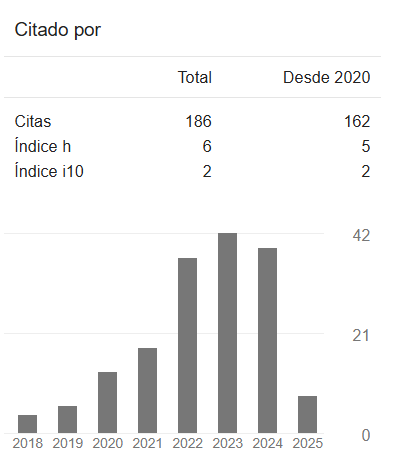Towards a model for a decolonial and non-exclusionary Design in Argentina
DOI:
https://doi.org/10.35305/23626097v11i21.473Keywords:
design, complexity, co-design, decoloniality, non-exclusionaryAbstract
This paper explores the need for a Design approach in Argentina that is both decolonial and inclusive to address the complex social issues the country is currently facing. The central hypothesis of the work is that a Design model based on complexity theory, co-design, and design for transitions -from a decolonial and non-exclusionary perspective- can be an effective tool to tackle these challenges. It is argued that traditional Eurocentric-focused design models do not align with the realities and needs of the Argentine context.
The way in which the importation of foreign design models has perpetuated a colonialist dynamic that overlooks the specificities as well as the cultural diversity of Argentina is analyzed. The need to transcend traditional methodologies and build a Design practice emerging from local realities and taking into account the country’s cultural characteristics is dealt with.
Ultimately, the aim is to offer a tool for practicing decolonial and non-exclusionary Design within a framework that leads designers to consider different variables and axes of analysis. This tool -which is introduced as a starting point for a more comprehensive, responsible, and transformative design practice in Argentina- seeks to promote an approach sensitive to local needs and realities regarding the cultural and social diversity of the Argentine context.
Downloads
Metrics
References
Aguirre, J. A. (2018). Pistas para aproximarse al diseño social: antecedentes y posturas. Revista KEPES,17, 9-26.
Alexander, C. (1971). Ensayo sobre la síntesis de la forma. Buenos Aires, Argentina: Ediciones Infinito.
Assusa, G. y Kessler, G. (2022). ¿Cuánta desigualdad puede soportar la democracia?: Notas sobre las percepciones sociales y la legitimidad ciudadana en la Argentina contemporánea. Estado y gobernabilidad democrática: aportes para la construcción del conocimiento estatal (pp 59-74) Buenos Aires, Argentina: Universidad Pedagógica Nacional.
Byung-Chul, H. (2023). La expulsión de lo distinto. Buenos Aires, Argentina: Herder.
Boidin, C. (2023). ¿Qué son los «estudios decoloniales» latinoamericanos? Ritimo. le changement par l´info. Disponible en: https://www.ritimo.org/Que-son-los-estudios-decoloniales-latinoamericanos
Bonsiepe, G. (1985). El diseño de la Periferia. Debates y Experiencias. CDMX, México: Gustavo Gili.
Breyer, G. (2007). Heurística del Diseño. Buenos Aires, Argentina: Nobuko.
Buchanan, R. (2001). Design Research and the New Learning. Design Issues, 17(4), 3-23.
Cabral, P. y Acacio, J. A. (2016). La violencia de género como problema público. Las movilizaciones por “Ni una menos” en la Argentina. Questión, 1(51), 170-187.
Canclini, N. (2001). Culturas híbridas. Estrategias para entrar y salir de la modernidad. Buenos Aires, Argentina: Paidós.
Cross, N. (2023). Design thinking: What just happened? Revista Design Studies, 86, 1-10.
Di Bella, D. (2020). Impacto de la Experiencia Diseño en Perspectiva. Cuaderno | Centro de Estudios en Diseño y Comunicación, 80, 173-239.
Devalle, V. (2009). La travesía de la forma. Buenos Aires, Argentina: Paidós.
Devalle, V. (2016). América Latina, la otra sede de la HfG-Ulm. En RChD: Creación y Pensamiento, 1(1), 53–63.
Dussel, E., y Sánchez de Antuñano, J. (1992). Cuestionamiento de la Situación actual del diseño y la tecnología en Contra un Diseño Dependiente: un modelo para la autodeterminación nacional. CDMX, México: Universidad Autónoma Metropolitana.
Dussel, E. (2004). Sistema mundo y transmodernidad. En S. Dube, I. Banerjee y W. Mignolo (Eds.), Modernidades coloniales (pp. 201-226). CDMX, México: El Colegio de México.
Escobar, A. (2017). Diseño para las transiciones, en Etnografías Contemporáneas, 4, 32-63.
Exss Cid, K. E., Spencer González, H., Vega Córdova, V., Jarpa Azagra, M., Álvarez-Aguado, I., Pastén Bernales, A., y von Unger Martínez, M. I. (2022). Investigación inclusiva y codiseño: Cocreación de un sistema de apoyo tecnológico para la discapacidad intelectual. Revista 180, (49), 95-106, doi: https://dx.doi.org/10.32995/rev180.num-49.(2021).art-866
Frascara, J. (1997). Diseño gráfico para la gente: Comunicaciones de masa y cambio social. Buenos Aires, Argentina: Ediciones Infinito.
Galán, B. (comp.) (2011). Diseño, proyecto y desarrollo. Miradas del período 2007-2010 en Argentina y Latinoamérica. Buenos Aires: Wolkowicz editores
Guilbaut, S. (2007). De cómo Nueva York robó la idea de arte moderno. Valencia, España: Tirant Lo Blanch.
Irwin, T. (2015). Transition Design: A Proposal for a New Area of Design Practice, Study, and Research. Design and Culture, 7(2), 229-246.
Irwin, T., Tonkinwise, C., y Kossoff, G. (2020). Diseño para la Transición: Educational Framework for Advancing the Study and Design of Sustainable Transitions. En Visiones del Diseño: Problematizar el Diseño para comprender su complejidad (pp. 31 – 65). Buenos Aires, Argentina: U. Palermo.
Jones, C. (1976). Métodos de diseño. Barcelona, Argentina: Gustavo Gili.
Juri, S. y Zurbriggen, C. (2022) Motivando transiciones hacia futuros sostenibles y resilientes: SARAS T-LAB. América Latina en Cuaderno 157 | Centro de Estudios en Diseño y Comunicación, 115-139
Kessler, G. (2018). Exclusión social y desigualdad ¿nociones útiles para pensar la estructura social argentina? Revista de Estudios sobre Cambio Estructural y Desigualdad Social, 28.
Lawson, B. (2006). How Designers Think. The process demystified. Great Britain, UK: Architectural Press
Ledesma, M. (2013). Cartografía del diseño social: aproximaciones conceptuales. Anales del IAA, 43, 97-105.
Ledesma, M. (2015). Empoderamiento y horizontalidad en nuevos emergentes en el diseño social. Revista Inventio, 11(24), 41-47.
Ledesma, M. y López, M. (2018). Retóricas del Diseño social. Buenos Aires, Argentina: Wolkowicz.
Ledesma, M. y Nieto, M. L. (2020). Diseño social. Ensayos sobre Diseño social en la Argentina (2000-2018). Buenos Aires, Argentina: Prometeo
Lugones, M. (2008). Colonialidad y género. Tabula Rasa, (9), 73-101.
Lupton, E. y Xia, L. (2021). Meet mythical form. E. Lupton (Comp.), Extra bold. A feminist, inclusive, anti-racist, nonbinary field guide for graphic designers. New York, USA: Princeton Architectural Press
Manzini, E., (2015). Cuando todos diseñan. Una introducción al diseño para la innovación social. Madrid, España: Experimenta.
Margolin, V. y Margolin, S. (2012). Un modelo social de diseño: cuestiones de práctica e investigación. Revista Kepes, 8, 61-71.
Mignolo, W. (2007). La idea de América Latina: La herida colonial y la opción decolonial. Barcelona, España: Gedisa.
Mignolo, W. (2011). The Darker Side of Western Modernity: Global Futures, Decolonial Options. Durham, USA: Duke University Press.
Norman, D. A. y Draper, S. W. (1984). User-Centered System Design: New Perspectives on Human-Computer Interaction. Florida, USA: CRC Press.
Papanek, V. (2014). Diseñar para el mundo real: ecología humana y cambio social. Barcelona, Argentina: Pollen edicions.
París Clavel, G. (1997). El diseño cobra sentido si persigue un objetivo social. Revista tipográfica, 33, 21-25.
Pittaluga, M. (2020). Visiones sobre el rol social del diseño. Buenos Aires, Argentina: Wolkowicz.
Pittaluga, M. (2022). Diseño complejo: aportes para la construcción de una vertiente teórica del diseño en Argentina a partir de la teoría de la complejidad de Edgar Morin. (Tesis doctoral) Universidad Nacional de La Plata. Recuperado de: https://sedici.unlp.edu.ar/handle/10915/145572
Pittaluga, M. (2023a). Complexus. Caos, Diseño y complejidad. Buenos Aires, Argentina: Wolkowicz.
Pittaluga, M. (2023b). El impacto de las fracturas del paradigma moderno en los discursos centrales del Diseño y las repercusiones en el contexto argentino. Cuaderno. Centro de Estudios en Diseño y Comunicación, 200, 143-168, doi: https://doi.org/10.18682/cdc.vi200.9727
Pittaluga, M. (Comp.) (2023c). Metele más diversidad. Buenos Aires, Argentina: Wolkowicz.
Quijano, A. (2000). Colonialidad del poder, eurocentrismo y América Latina. En E. Lander (Ed.), La colonialidad del saber: eurocentrismo y ciencias sociales (pp. 201-246). Buenos Aires, Argentina: CLACSO.
Rittel, H.W.J. y Webber, M. (1973). Dilemmas in a general theory of planning. Policy Sci, 4, 155-169.
Sachs, W. (1999). Planet Dialectics: Exploration in Environment and Development. Londres, Gran Bretaña: Zed Books Ltd.
Sanders, E. (2002). From user-centered to participatory design approaches. En J. Frascara (Ed.), Design and the Social Sciences. Making Connections (pp. 1-7). Londres, UK: Taylor y Francis Books Limited.
Sanders, E. y Simons, G. (2009). A social vision for value co-creation in design. Disponible en: http://www.timreview.ca/article/310
Segato, R. (2013). La crítica de la colonialidad en ocho ensayos y una antropología por demanda. Buenos Aires, Argentina: Prometeo Libros.
Segato, R. (2016). La guerra contra las mujeres. Madrid, España: Traficantes de Sueños.
Senar, P. (2009). Hacia un diseño disciplinar inclusivo: Roles sociales del diseño industrial en Argentina. Revista Otra Economía, III (4), 98-121.
Simon, H. A. (1969). The sciences of the artificial. Cambridge, USA: MIT Press.
Torres, F., Lafit, F., Beliera, A., Corsiglia Mura, L., Martínez Ramírez, F., Andolfo, M. y Uehara, L. (2018). La conquista y defensa de nuestros derechos. La Plata, Argentina: Universidad Nacional de La Plata.
Vaca, E. y Veritier, G. (2011). Pobreza y desarrollo: ¿es suficiente la perspectiva económica? En M., Diloretto y A. J. Arias (Comp.), Miradas sobre la pobreza : intervenciones y análisis en la Argentina posneoliberal (pp. 53-60). La Plata, Argentina: Universidad Nacional de La Plata.
Vallone, M. (2011). Problemas Sociales Argentinos: los nuevos desafíos a la imaginación sociológica. En A. Arias y M. Di Loretto, Miradas sobre la pobreza. Intervenciones y análisis en la Argentina posneoliberal (pp. 39-52). La Plata, Argentina: EDULP.
Walsh, C. (2009). Interculturalidad crítica y pedagogía de-colonial: apuestas (des)de el in-surgir, re-existir y re-vivir. Revista Educação Intercultural Hoje em América Latina, 12(1), 25-42.
Walsh, C. (2013). Pedagogías decoloniales: Prácticas insurgentes de resistir, (re)existir y (re)vivir. Quito, Ecuador: Abya-Yala.
Walzer, M. (1993). Las esferas de la justicia. Una defensa del pluralismo y la igualdad. Buenos Aires, Argentina: Fondo de Cultura Económica.

Published
How to Cite
Issue
Section
License
Copyright (c) 2024 A&P Continuidad

This work is licensed under a Creative Commons Attribution-NonCommercial-ShareAlike 4.0 International License.
Open access policy
A&P Continuidad is a non-profit and open access publication. According to Mexico Declaration on Cultural Policies, the journal distribution is submitted to Creative Commons Attribution-Noncommercial-ShareAlike 4.0 International Public License (CC BY-NC-SA). “Neither the commercial use of the original work nor that of the possible derivative works are allowed. The distribution of derivative works should be submitted to the license regulating the original work. This license is not free.”
A&P Continuidad authorizes the partial or full reproduction of texts and graphs provided that the source is cited. Authors are exclusively responsible for the criteria expressed in the articles which do not necessarily reflect the opinion of the Editorial Committee or that of the Direction Board. The copyright of the published articles pertains to their authors or publishers.
Transfer of rights
The acceptance of an article to be published implies the author’s transfer of rights to the journal. Authors continue to have the right to use the material in future books or publications, approve or veto the republication of their works as well as the rights related to patents or other rights. Transfer of rights form may be downloaded here.





























 This OJS site and its metadata are under a
This OJS site and its metadata are under a 

